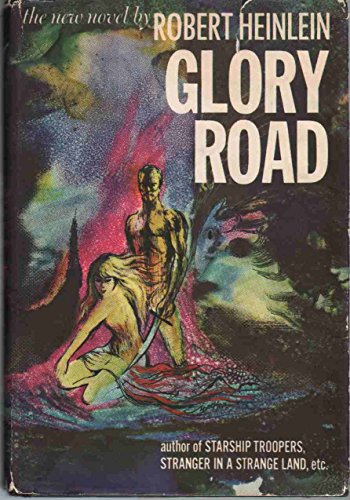What are you reading now?
-
I've been a fan of MacIntyre's books since I read "Operation Mincemeat."
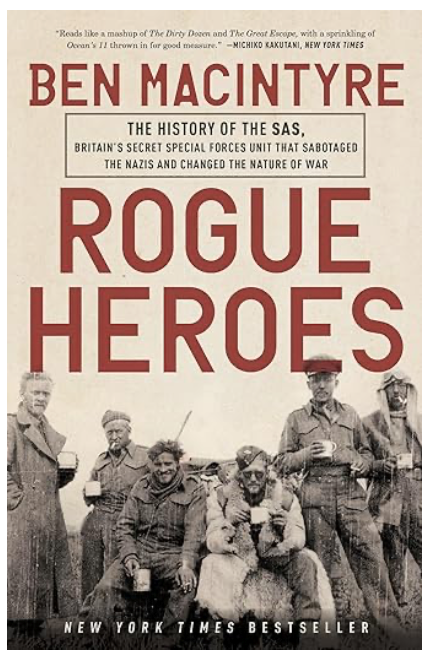
"Britain’s Special Air Service—or SAS—was the brainchild of David Stirling, a young aristocrat whose aimlessness belied a remarkable strategic mind. Where most of his colleagues looked at a World War II battlefield map and saw a protracted struggle, Stirling saw an opportunity: given a small number of elite men, he could parachute behind Nazi lines and sabotage their airplanes and supplies. Defying his superiors’ conventional wisdom, Stirling assembled a revolutionary fighting force that would upend not just the balance of the war, but the nature of combat itself.
Bringing his keen eye for detail to a riveting wartime narrative, Ben Macintyre uses his unprecedented access to the SAS archives to shine a light on a legendary unit long shrouded in secrecy."
I enjoyed the TV series - so far, the series is pretty close to (1st quarter of) the book
Link to video -
I've been a fan of MacIntyre's books since I read "Operation Mincemeat."

"Britain’s Special Air Service—or SAS—was the brainchild of David Stirling, a young aristocrat whose aimlessness belied a remarkable strategic mind. Where most of his colleagues looked at a World War II battlefield map and saw a protracted struggle, Stirling saw an opportunity: given a small number of elite men, he could parachute behind Nazi lines and sabotage their airplanes and supplies. Defying his superiors’ conventional wisdom, Stirling assembled a revolutionary fighting force that would upend not just the balance of the war, but the nature of combat itself.
Bringing his keen eye for detail to a riveting wartime narrative, Ben Macintyre uses his unprecedented access to the SAS archives to shine a light on a legendary unit long shrouded in secrecy."
I enjoyed the TV series - so far, the series is pretty close to (1st quarter of) the book
Link to video@George-K said in What are you reading now?:
I've been a fan of MacIntyre's books since I read "Operation Mincemeat."

As I watched the TV series, I thought, "Nah, this shit can't be true."
Halfway through the book, it turns out that most of it WAS true.
What a great tale - love MacItyre's books.
-
I'm still reading 4-5 books a month - but not posting unless i think it's something to talk about. I just got around to Douglas Murray's "The War on the West" - and it's a good read. It's a shame that people just hear his name and cover their eyes and ears. He provides thoughtful criticism of what I sometimes refer to as "flashcard responses" to issues. He goes after the 1619 Project and what might seem like self-flagellation of Western thought. One of my favorite courses in my progressive high school was titled "The Development of Western Thought" - which introduced students to a Great Books type of survey of philosophy and literature from the Greeks to modern times. I benefited greatly from that course - as it set up a lifelong interest in substantive works.
Thoughtful discourses presupposes that one has some education and exposure to a range of views. While one can say that Murray is writing a narrative to prove a point - and thus, isn't completely balanced in his exposition, it enables a reader to have more nuanced responses when discussing some of the issues we currently face.
Sadly, his name is one of those flashcards - Douglas Murray = CANCEL
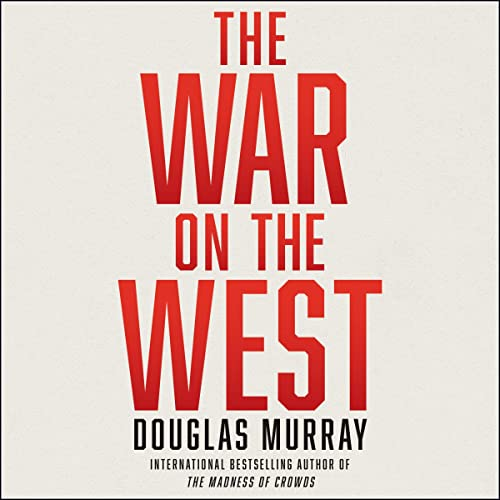
-
Oooh. I'll have to check that out!
Thanks, @kluurs!
Finished "Rogue Heroes" this morning.
Typical MacIntyre stuff - thoroughly researched and written in a narrative manner that's easy to follow.
My only criticism is that part two of the book, the SAS in Europe is much more "compartmentalized" than the first half. While the first half sets up the history of the unit and does a great job of introducing you to the main players, the second half has each chapter tell one story/mission, with little relationship to the preceding ones. New members are introduced, most of which don't know or interact with each other. Each chapter stands alone.
Perhaps the most interesting/disturbing chapter of Part 2 was the discovery and liberation of Bergen-Belsen. No matter how many times you see videos, read narratives, it's always a blow to the gut to revisit the horrors.
If you're a fan of WWII stories, take a look at this one. It's very well done.
-

Actually written by C.M. Kornbluth and Judith Merrill, it was serialized in Astounding Science Fiction in 1952. Later released by Simon & Schuster in hardback and several paperback editions.
The plot deserved a better writer, but it's still a 3.5.
The book is set in the future, after a limited nuclear war. The world has evolved into a feudal state, which includes the moon colony and Mars.
All is governed by an emperor, who wields power through his Powermaster, an office that controls the Gunner Supreme, Gunners and Armsmen. (Think knights, squires and armsmen with futuristic weapons.)
Gunner Cade becomes involved in a conspiracy to overthrow the Empire by winning the independence of Mars.
-
I mostly enjoyed the Netflix adaptation, but it did seem a bit contrived in places. Perhaps shoe-horned is a better term. I got through about ⅓ of the Chinese version - interesting, but slower than Aqua's sister to give a refund.
So, I thought I'd re-read the book. I don't remember much from my first read, so, having seen both adaptations, it might be worth it.
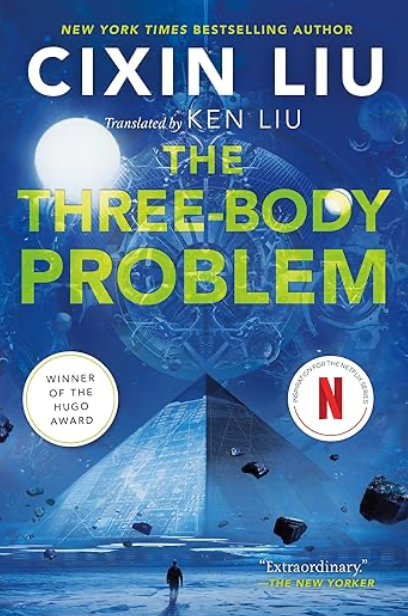
Enjoying it MUCH more the second time around.
-
I mostly enjoyed the Netflix adaptation, but it did seem a bit contrived in places. Perhaps shoe-horned is a better term. I got through about ⅓ of the Chinese version - interesting, but slower than Aqua's sister to give a refund.
So, I thought I'd re-read the book. I don't remember much from my first read, so, having seen both adaptations, it might be worth it.

Enjoying it MUCH more the second time around.
@George-K said in What are you reading now?:
Enjoying it MUCH more the second time around.
Finished it this morning. A great tale, but...
Like other "Trilogies" it ends on a cliffhanger, or perhaps on an unresolved note. The story ends with a "Now what?" note. I wish authors would just tell the story, and merge into the next tale, without leaving a ton of stuff on the table.
Of course, "Dark Forest" is next in the queue.
-
has anyone read this?
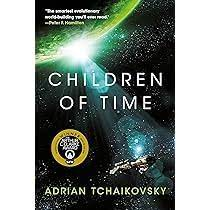
Started it a couple of years ago. Gave up.
Too weird, even for me.
In a far-future, Dr. Avrana Kern is the head of a science team that has terraformed an uninhabitable planet then deliberately released a genetically designed virus to speed the evolution of monkeys. Their plan goes wrong when the monkeys' ship burns up upon entry, leaving the virus to infect a variety of creatures, eventually settling on spiders (Portia labiata). Meanwhile, the last human remnants of a dying Earth are en route to the promised paradise planet unaware of the uplifted spiders. The work plays off the contrast between the rapid advancement of the spiders and the barbaric descent of the starship crew of the last humans
Spiders.
Space spiders...
-
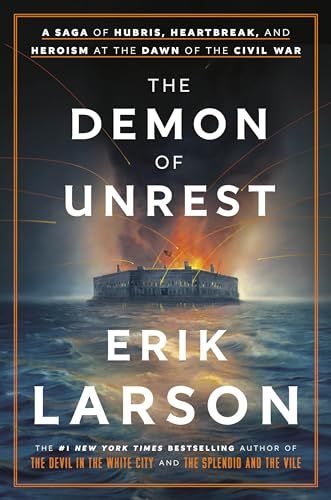
New Erik Larson just released.
Civil war stuff.
-
@George-K said in What are you reading now?:
Enjoying it MUCH more the second time around.
Finished it this morning. A great tale, but...
Like other "Trilogies" it ends on a cliffhanger, or perhaps on an unresolved note. The story ends with a "Now what?" note. I wish authors would just tell the story, and merge into the next tale, without leaving a ton of stuff on the table.
Of course, "Dark Forest" is next in the queue.
@George-K said in What are you reading now?:
Of course, "Dark Forest" is next in the queue.
A much better book than "Three Body Problem." Mostly new characters. The story has a resolution which, though not satisfying in an emotional sense, gives the story a reasonable end. However, the door is open for another episode.
I might just dive into #3 for the sake of continuity and remembering plot lines.
-
OK, once I started, I had to finish.
Started the final book yesterday.
The story, and the narration keep getting better. Though the first book was intriguing, the second one really fleshed out the story. I can't wait to see where this one finally takes us.
Only 592 pages, LOL.
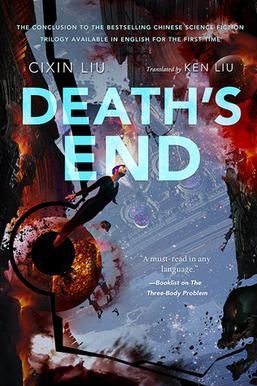
-
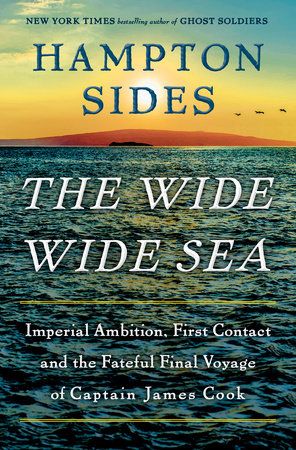 https://images4.penguinrandomhouse.com/cover/9780385544764
https://images4.penguinrandomhouse.com/cover/9780385544764Couldn’t rely get into the new Larsen book so I ditched and went to what is for me always a good staple, maritime stories. This just released about cooks third and final voyage, I thoroughly enjoyed a previous book on HMS endeavor which was cooks vessel for his first voyage. So this looks to me just what I need now.
-
OK, once I started, I had to finish.
Started the final book yesterday.
The story, and the narration keep getting better. Though the first book was intriguing, the second one really fleshed out the story. I can't wait to see where this one finally takes us.
Only 592 pages, LOL.

@George-K said in What are you reading now?:

Finished it.
wipes brow
Actually a bit of a disappointment. So much extraneous stuff that added little to the story, and was shoehorned into a "Chekhov's pistol" type of setting.
This was good, hard sci-fi that devolved into speculative stuff about multiple, alternate universes. Unexplained FTL travel, and no real resolution.
Such great premises that could have been fleshed out a lot better.
It'll probably continue to be a good TV series, until it gets weird (as the third book did).
-
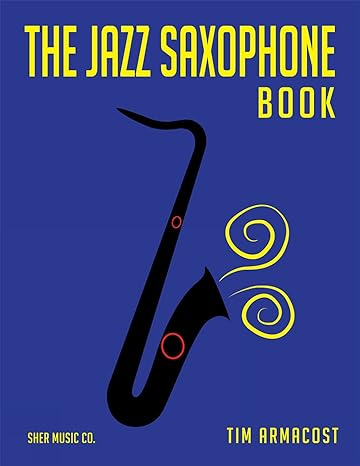
I have way too many of this sort of book discussing how to improve your jazz, most of which remain unread. This one is actually quite good.
Probably a fairly limited audience for it here at least...
-
rereading the karla trilogy by le carre
(TTSS, honorable school boy, smileys people)
ive been though them before but i simply cannot get enough of le carre as a spy writer. IMHO, no one comes close to his mastery in the genre. simply superb and a pleasure to read.
the soviet-west cold war, seems to be so very much alive, 60 years down the road, even though 60 years is about 2-3 generations afterwards.
